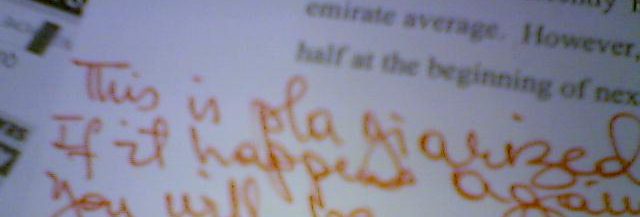Caught out: over 250 cases of cheating at Warwick
A Freedom of Information request has revealed that there were 261 cases of cheating and plagiarism in the 2014/15 academic year at Warwick.
93% of those caught cheating were undergraduate students, with only 18 of the cases postgraduates.
Cheating is split into two categories at Warwick: cheating in exams, and cheating in essays, or other assessed work.
All the postgraduate cases were for cheating on assessed work. The university was unable to reveal the breakdown for undergraduates, nor reveal the rates per department or faculty.
The 261 cases of cheating equate to just over 1% of Warwick’s 23,570 students in the given year.
This marks a ten-fold increase in cheating over the past five years. Back in the 2009/10 academic year, there were just 22 cases of cheating overall, the equivalent of around 0.1% of all students.
The 261 cases of cheating equate to just over 1% of Warwick’s 23,570 students in the given year.
In a 2011 Telegraph report into cheating at UK universities by the Telegraph, more than 17,000 cases were found across the country. Sheffield Hallam caught the highest number of students cheating, at 2.3%: more than double Warwick’s rate for 2014/15.
The Boar spoke to several Warwick students – some of whom have chosen to remain anonymous – about their experiences with plagiarism and cheating.
One final-year student was concerned their place at Warwick was under threat before a cheating allegation against them was dismissed.
They commented: “In first-year a friend completely copied an essay of mine without my knowledge, and our department was at first unsure who was at fault.
“It obviously became clear it wasn’t me, but until then I was genuinely worried I might be kicked out.”
I can’t explain how much my heart dropped when they used the words “cheating” and “plagiarism”. I was terrified.
Anonymous final-year student
Beth Hurst, a final-year student studying English and Creative Writing, said her experience of cheating took place some time after the essay in question was originally handed in.
She told the Boar: “In an essay feedback session, my tutor had underlined a few parts that had been flagged by the plagiarism system. I had quoted the source in the sentence before but then afterwards accidentally presented it as my own explanation.”
Beth added: “My tutor didn’t seem to be too bothered, and just said to be careful next time – it wasn’t seen as malicious.”
Gemma Turner, in her third-year of Sociology, recalled a seminar in which plagiarism concerns were flagged up. The tutor did not say who, and Gemma did not find out.
She stated: “It was really nerve wracking knowing that someone had potentially plagiarised something, but not knowing who. It starts to play on your mind and gets you second guessing your ability to be able to meet the standards of academic writing.
Meanwhile the university put the rise of cases in plagiarism down to improved detection techniques, stating: “With the implementation of improved detection and recording methodologies there has been a natural increase in the number of cases being reported since 2009/10.”

Comments